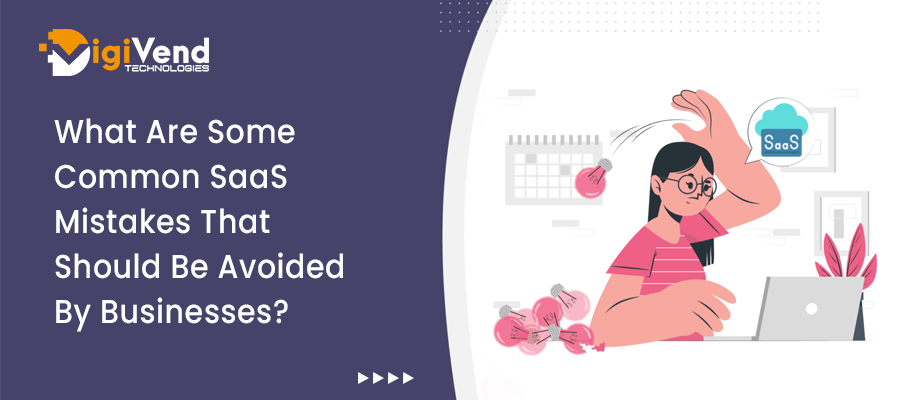WordPress stands as a dominant force. With its user-friendly interface and powerful features, WordPress has become the go-to platform for individuals and businesses alike. In this comprehensive guide, we delve into the essentials of WordPress development, shedding light on what it is, the role of a WordPress developer, the advantages it offers, and why hiring a WordPress developer can be a game-changer for your online presence.
What is WordPress?
WordPress is a versatile and open-source content management system (CMS) that powers a significant portion of websites on the internet. Launched in 2003, it has evolved from a simple blogging platform to a robust CMS capable of supporting a wide range of websites, from blogs and business sites to e-commerce platforms and more. What sets WordPress apart is its user-friendly interface, extensive plugin architecture, and vibrant community that continually contributes to its development.
Who is a WordPress Developer?
A WordPress developer is a skilled professional who specializes in creating, customizing, and maintaining websites using the WordPress platform. These developers possess a deep understanding of programming languages such as PHP development, HTML, and CSS, along with expertise in working with WordPress themes and plugins. Their role extends beyond basic website creation to include optimizing performance, ensuring cyber security, and troubleshooting any issues that may arise.
Advantages of WordPress Development
WordPress development offers a myriad of advantages, making it a preferred choice for individuals, businesses, and developers alike. Let’s delve into the key benefits that propel WordPress to the forefront of content management systems.
- User-Friendly Interface: WordPress boasts an interface that is intuitive and user-friendly. Whether you are a seasoned developer or a business owner with minimal technical knowledge, navigating through the WordPress dashboard is a breeze. The platform’s simplicity allows users to create, edit, and publish content with ease, reducing the learning curve associated with website management.
- Vast Plugin Ecosystem: Central to the success of WordPress is its extensive library of plugins. These plugins serve as invaluable tools, offering solutions for various functionalities. Whether you need to optimize your website for search engines, enhance security, or integrate e-commerce features, there’s likely a plugin that meets your requirements.
- Responsive Design: In an era dominated by diverse devices and screen sizes, having a responsive website is paramount. WordPress excels in this aspect, offering themes and plugins that ensure your website adapts seamlessly to different devices.
- SEO-Friendly Structure: Search engine optimization (SEO) is a crucial component of any successful online presence. WordPress, by its very nature, generates clean and organized code that search engines favor. Additionally, the platform provides users with the tools to further enhance SEO, from optimizing content and meta tags to creating user-friendly URLs.
- Cost-Effective Solution: Affordability is a significant advantage of WordPress development. The platform itself is open-source and free to use, significantly reducing initial development costs. Additionally, the abundance of pre-designed themes and plugins minimizes the need for extensive custom development, further lowering expenses.
These advantages collectively make WordPress an attractive choice for a wide range of websites, from small blogs to large e-commerce platforms. Its user-centric approach, coupled with a robust set of features, empowers individuals and businesses to create and manage websites efficiently.
Why Hire A WordPress Developer?
Expanding digital landscape, where the online presence of businesses is non-negotiable, the role of a WordPress developer becomes increasingly vital. While building a website on WordPress might seem approachable for the tech-savvy, hiring a WordPress developer brings a myriad of advantages that extend far beyond the capabilities of a DIY approach.
- Customization Expertise: Turning Vision into Reality
While WordPress offers an extensive library of themes, a WordPress developer takes customization to a whole new level. Your website is not just a template; it becomes a unique representation of your brand. Developers possess the skills to tailor the design, layout, and functionalities to align with your specific vision and business goals.
- Technical Troubleshooting: Navigating the Digital Maze
Technical glitches can be a nightmare for those without a development background. When issues arise – be it a malfunctioning plugin, a broken feature, or a mysterious error message – a WordPress developer acts as your digital detective. Armed with technical expertise, they can quickly identify the root cause of problems and implement effective solutions.
- Security Assurance: Safeguarding Your Digital Fortress
In an era where cyber threats are rampant, security is paramount. A WordPress developer is well-versed in implementing robust security measures to safeguard your website against potential threats. From secure coding practices to regular security audits, they fortify your digital fortress, reducing the risk of data breaches, hacks, and other security vulnerabilities.
- Optimization for Performance: Accelerating User Experience
Page load speed is not just a user preference; it’s a critical factor for search engine rankings. Slow-loading websites not only frustrate users but also risk losing visibility in search results. A WordPress developer focuses on optimizing your website’s performance, enhancing its speed, and ensuring a seamless user experience. By implementing best practices for performance optimization, they contribute to higher user satisfaction and improved search engine rankings.
- Future-Proofing Your Website: Adapting to Evolving Needs
As your business evolves, so should your website. A WordPress developer possesses the foresight to anticipate future needs and challenges. They structure your website in a way that allows for scalability and adaptability, ensuring that it remains relevant in the face of changing requirements.
Hiring a WordPress developer is an investment in the long-term success and effectiveness of your online presence. Beyond the technical skills, developers bring a strategic mindset, an understanding of industry best practices, and a commitment to delivering a website that not only meets but exceeds your expectations.
Beyond the Basics: Advanced WordPress Development Tips
WordPress development, moving beyond the basics requires a deep dive into advanced techniques that can elevate your website to new heights. Let’s explore some key tips and techniques that seasoned WordPress developers employ to create sophisticated, high-performance websites.
- Theme Development Mastery: Crafting a Unique Visual Identity
While WordPress offers a plethora of pre-designed themes, advanced WordPress developers often choose to go beyond these templates, opting for custom theme development. This involves creating a unique design that aligns with the brand identity and specific requirements of a website.Key Considerations:
- Design from Scratch: Developing a theme from the ground up allows for complete control over the website’s aesthetics, ensuring it stands out in a crowded digital landscape.
- Responsive Design: Prioritize responsiveness to guarantee an optimal user experience across various devices, from desktops to smartphones.
- Cross-Browser Compatibility: Test the theme across different browsers to ensure consistent performance, preventing compatibility issues.
- Plugin Development Expertise: Tailoring Functionality to Your Needs
While the WordPress plugin repository is vast, there are instances where custom functionality is required. Advanced developers excel in creating custom plugins to address unique features and functionalities that off-the-shelf plugins may not cover.Best Practices:
- Identifying Needs: Conduct a thorough analysis of the website’s requirements to determine where custom plugins can enhance functionality or fill gaps.
- Efficient Coding: Write clean and efficient code to ensure that custom plugins integrate seamlessly with the WordPress core and other existing plugins.
- Regular Updates: Stay proactive with updates to custom plugins, ensuring compatibility with new WordPress releases and maintaining security standards.
- WordPress API Integration: Seamless Connection with External Services
The WordPress REST API has opened up opportunities for developers to integrate external services seamlessly into their WordPress sites. This can include pulling data from third-party sources or enabling data exchange between different platforms.Integration Steps:
- Understanding APIs: Familiarize yourself with the APIs of external services, grasping how data can be retrieved and utilized within your WordPress site.
- Authentication Protocols: Implement secure authentication protocols to ensure that data exchange is protected, maintaining the integrity of your website.
- Optimizing Performance: Strive for efficient data retrieval and processing to prevent slowdowns in your website’s performance.
- Database Management Proficiency: Optimizing for Speed and Efficiency
The WordPress database is the heart of your website, and advanced developers pay careful attention to its management. Optimizing database queries, reducing redundancy, and ensuring efficient data storage is crucial for maintaining high performance.Database Management Tips:
- Query Optimization: Analyze and optimize database queries to minimize execution time, improving the overall speed of your website.
- Indexing Strategies: Implement indexing to enhance the retrieval speed of specific database queries, particularly those involving large datasets.
- Regular Backups: Establish a routine for database backups to prevent data loss and facilitate quick recovery in case of unexpected issues.
- Security Best Practices: Safeguarding Your WordPress Fortress
Security is paramount in the digital landscape, and advanced WordPress developers employ robust security measures to protect their websites from potential threats. This goes beyond basic security plugins and involves secure coding practices and regular security audits.Security Measures:
- Secure Coding Standards: Adhere to secure coding practices, such as input validation and output sanitization, to prevent common vulnerabilities like SQL injection and cross-site scripting (XSS).
- Regular Audits: Conduct regular security audits to identify and address potential vulnerabilities promptly, staying ahead of emerging security threats.
- Two-Factor Authentication: Implement two-factor authentication to add an extra layer of security, especially for user accounts with administrative privileges.
Moving beyond the basics in WordPress development requires a combination of technical expertise, creativity, and a commitment to best practices. Whether you’re delving into custom theme development, creating bespoke plugins, integrating external services through APIs, optimizing database performance, or fortifying your site’s security, these advanced tips can propel your WordPress projects to the next level.
5 Frequently Asked Questions About WordPress Development
- Is WordPress only for blogging?
No, WordPress has evolved into a versatile CMS suitable for various types of websites, including blogs, business sites, portfolios, and e-commerce platforms.
- Do I need coding skills to use WordPress?
Basic usage of WordPress doesn’t require coding skills. However, for advanced customization, a knowledge of HTML, CSS, and PHP can be beneficial.
- Are all WordPress themes customizable?
While most themes are customizable to some extent, the degree of customization varies. Premium or custom themes often offer more flexibility.
- How often should I update my WordPress site?
Regular updates, including core updates, theme updates, and plugin updates, are crucial for security and performance. Aim for weekly checks.
- Can I switch my website to WordPress from another platform?
Yes, it’s possible to migrate your website to WordPress. A WordPress developer can assist in the smooth transition, ensuring all content and functionality are preserved.
Whether you’re a beginner or a seasoned user, understanding the basics and the benefits of hiring a WordPress developer can empower you to make the most of this powerful platform. As the digital landscape continues to evolve, WordPress remains a reliable ally for those seeking a robust online presence.
 ISO 9001:2010
ISO 9001:2010 INDIA: +91 8447 380 102
INDIA: +91 8447 380 102 USA: +1 (321) 800-5881
USA: +1 (321) 800-5881








